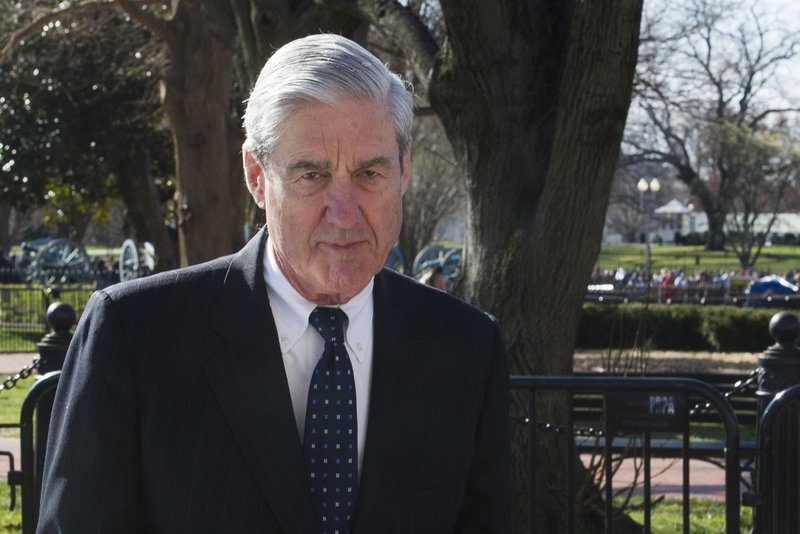The chairman of the House Judiciary Committee says he expects special counsel Robert Mueller to have “a profound impact” when he testifies before Congress on July 17, even though Mueller has said he won’t provide any new information.
Mueller’s unusual back-to-back testimony in front of the House Judiciary and Intelligence committees is likely to be the most highly anticipated congressional hearing in years, particularly given Mueller’s resolute silence throughout his two-year investigation into Russian contacts with President Donald Trump’s campaign . Democrats negotiated for more than two months to obtain the testimony, hoping to re-focus public attention on the special counsel’s 448-page report that they believe most Americans have not read.
“I think that given the nature of what he has to say, given the nature of what was in the report, he will be a very compelling witness,” Judiciary Committee Chairman Jerrold Nadler told reporters Wednesday.
Throughout his investigation, Mueller never responded to angry, public attacks from Trump, nor did he ever personally join his prosecutors in court or make announcements of criminal charges from the team. His sole public statement came from the Justice Department podium last month as he announced his departure, when he sought to explain his decision not to indict Trump or to accuse him of criminal conduct. He put lawmakers on notice that he was not eager to testify and did not ever intend to say more than what he put in the report.
“We chose those words carefully, and the work speaks for itself,” Mueller said May 29. “I would not provide information beyond what is already public in any appearance before Congress.”
Those remarks did little to settle the demands for his testimony. The two committees continued negotiations that had already been going on for weeks, saying they still wanted to hear from Mueller no matter how reluctant he was. The two committees announced Tuesday that he’d finally agreed to come under subpoena, and that they had issued the subpoenas that day.
“When you accept the role of special counsel in one of the most significant investigations in modern history, you’re going to have to expect that you’re going to be asked to come and testify before Congress,” said House Intelligence Committee Chairman Adam Schiff.
The committee chairmen said there will be two hearings “back to back,” one for each committee, and they will also meet with Mueller’s staff in closed session afterward. The Judiciary panel will go first, then Intelligence.
Nadler would not give details on the negotiations or why the subpoenas were needed. He just said “we reached a point where we believed that if we issued a subpoena he would obey it.” The Justice Department declined to comment.
Trump himself simply tweeted, “Presidential Harassment!” He followed up on Wednesday morning in an interview with Fox Business Network, saying, “It never ends,” then reiterating his grievances against the way the probe was conducted.
In the report issued in April, Mueller concluded there was not enough evidence to establish a conspiracy between Trump’s presidential campaign and Russia, which was the original question that started the investigation. But he also said he could not exonerate Trump on obstruction of justice. The report examined several episodes in which Trump attempted to influence the investigation.
Democrats say it is now the job of Congress to assess the report’s findings. Almost 80 Democrats have already announced that they believe an impeachment inquiry is needed, or around a third of the caucus. But House Speaker Nancy Pelosi has preferred a methodical approach that includes testimony from witnesses like Mueller. Supporters of opening the impeachment process hope that his open testimony will help galvanize their effort.
Democrats are likely to confront the special counsel on why he did not come to a firm conclusion on obstruction of justice, seek his reaction to Trump’s criticism and ask for his personal opinion about whether Trump would have been charged were he not the commander in chief. Republicans are likely to ask him about how the probe was conducted, and whether there was bias against Trump at the Justice Department.
Republicans have criticized Democrats for their continuing investigations of the president. House Minority Leader Kevin McCarthy, R-Calif., questioned why they would still want to hear from Mueller after the lengthy report was issued. “He said he didn’t want to talk to us anymore, didn’t he?”
But Georgia Rep. Doug Collins, the top Republican on the Judiciary panel, has said he has no objections to Mueller’s testimony.
“May this testimony bring to House Democrats the closure that the rest of America has enjoyed for months, and may it enable them to return to the business of legislating,” Collins said.
(AP)












2 Responses
Here some questions Mueller should be asked:
1. Mr Mueller, when did you know that Christopher Steele dossier was bogus?
2. Mr Mueller, when did you determine that there was no Russian Collusion? Before 2018 mid-terms or after?
3. Mr Mueller, who Joseph Mifsud was working for?
4. Mr. Mueller, why did you terminated Peter Strzok only after his elicit text messages with Lisa Page became public?
5. Mr Mueller, why did you wiped out over 20K text messages on FBI issued phones between Strzok and Page ?
6. Mr Mueller, Did you examine DNC computer servers, allegedly broken into by Russians, or you relied on the report compiled by Hillary hired CroudStriker private security firm?
7. Mr Mueller, who killed Seth Rich?
8. Mr Mueller, are you a dirty cop?
Well said